The Agenda 👇
Author Diana Lind on the future of housing 🎧
Is Amazon left-wing or right-wing? Actually, it’s a bit of both
Will the gig economy get its social contract? I’ve written so much on that topic
As proven by successful vaccination campaigns, you shouldn’t centralize everything
Today’s episode of the Building Bridges podcast is a conversation between my wife Laetitia Vitaud and Diana Lind, author of the remarkable Brave New Home: Our Future in Smarter, Simpler, Happier Housing.
We all sense how housing is a cornerstone of our social contract. In most countries, a house is many things at the same time: a shelter for one’s family, but also an investment for old age as well as collateral against which we can borrow and consume.
As a result, we shouldn’t be surprised by the following: on one hand, the shift to the Entrepreneurial Age is a direct challenge for housing as we know it; on the other hand, it’s very difficult to change anything in housing because it’s so ingrained in our culture, our collective psyche, and our social contract.
The pandemic has been revealing in this regard. With many schools closed and many people stuck at home, there has been a widespread realization that the housing market doesn’t really match our needs and expectations anymore.
The model of a single-family home, which became dominant during the post-war period, is ill-designed for today’s economy. Two-income households, longer life expectancy, less predictable careers, more and more jobs (whether high-skill or low-skill) concentrated in urban areas: all of these call for a dramatic upgrade of the housing market and our very conception of ‘home’.
It so happens that history is the most fertile ground there is to help us broaden our perspective when it comes to housing. By going into the past, we can see that communal housing, short-term rentals for highly mobile workers, and multi-generational households were the norm in the vibrant cities of the 19th century. What if those are a frontier we should try and (re-)explore?
Indeed, in her landmark book Brave New Home, Diana Lind acts as a guide to the history of housing and reveals that what we take for granted is in fact very recent and very dependent on a specific cultural and political context. Thus our vision of housing is also much more precarious than many people assume. It could very well be that the pandemic, as an accelerant of the shift to a new techno-economic paradigm, marks the end of housing as we know it—and the beginning of a new approach to providing shelter, investing in assets, and living together in our more urban world.
👉 Listen to Laetitia’s conversation with Diana in the latest episode of the Building Bridges podcast using the player above 👆 or on Apple Podcasts or Spotify.
📦 Amazon’s Strange Politics
The past few weeks have seen some heated commentary regarding Amazon and a union drive at its Alabama fulfillment center. As someone who supports both a strong social safety net and admires Amazon’s performance as a company, I understand how people can be surprised at the contrast: Amazon has generally progressive cultural and political legacy, but now it’s taking a turn toward defending its interests as a now highly labor-intensive business.
Amazon’s position is unusual indeed. When we step back, most businesses in the past have moved being labor-intensive to being capital-intensive industries, becoming able to produce just as much, if not more, with a smaller and smaller workforce. On the other hand, very few corporations have gone the other way like Amazon, and this might explain the company’s strange politics.
In any case, it’s clear that balances must be struck. There are industries in which capital is unable to replace labor, for instance in proximity services where many workers are on the front lines interacting with many customers. And then there are industries in which capital can exist on its own, creating a highly stratified world of a few haves and many have-nots. And so the question is there: can we as a society (and Amazon as a company) have the best of both worlds?
👉 I reflect on the current situation and capitalism’s politics in Amazon’s Strange Politics.
🚲 All About the Gig Economy
Reflecting on labor-intensive industries and the spectacle of the Deliveroo IPO led me to think that collecting together resources on the “gig economy” could be quite timely. I started by noting, however, that I don’t particularly use that term (except with the associated quotation marks) since I think it’s about much more than that, namely the entire world of flexible work powered by tech platforms.
My first writings in English on the topic date back to 2015, when I wrote an article in Foreign Affairs with my friend Bruno Palier. A year later I talked about it as part of one of my most read pieces ever, “Enough With This Basic Income Bullshit” and then it became a critical part of the research and material for my 2018 book on building a social safety net for the Entrepreneurial Age, Hedge.
Throughout, I’ve been convinced that the move to a more entrepreneurial economy will carry with it the rise of the gig economy, simply because of the ability for information to move more and more quickly among interested parties. This is also what underlies the growing need for an upgraded social safety net, which was a key part of discussions around the Deliveroo IPO.
👉 Read on about what is needed to make flexible work good work in All About the Gig Economy.
⛪️ What Should Be Centralized?
In my home country of France, which has just headed back into another lockdown period, the headlines over the last few days have centered on the opening of new mass vaccination sites. Yet in the US, which has been one of the fastest at vaccinating its citizens, such mass vaccination sites have been largely abandoned in favor of distribution through the vast network of local pharmacies.
It got me thinking about how organizations manage the balance between their centralized and decentralized levels. I don’t believe that it’s so simple as positing centralization vs. decentralization as a general theory; every organization has elements of both, and so the real question is how to optimally distribute assets, functions and risks between the two.
A big challenge is that the functions that are optimally centralized (or decentralized) in the age of computing and networks are not the same ones that were optimally centralized (or decentralized) in the age of the automobile and mass production. As such, many organizations are struggling to reshuffle things, especially when they are trapped in a centralizing mindset such as that which dominates France’s government and institutions.
👉 I also tested out a new format for gathering these ideas together in What Should Be Centralized?
Sounds interesting? Subscribe to European Straits and let me know what you think!
🚀 In my latest contribution to The Family’s daily newsletter, I comment on Deliveroo’s IPO and lessons that early-stage founders can draw from it: Three lessons to keep in mind about your (future) IPO.
🇪🇺 A few weeks ago, I wrote a column in Sifted about the difficulty that Europe has in growing successful companies in the social media space. It inspired interesting counterpoints earlier this week:
Sameer Singh, an angel investor with Atomico, also took to Sifted to share a convincing Blueprint for building social media giants in Europe.
Sarah Guemouri, a Senior Associate at Atomico, expanded on Sameer’s thoughts on Twitter:


Then Akhil Gupta, a startup founder based in Bangalore, offered an inspiring comparison with building social media companies in fragmented India:

From Solving the Housing Problem: Hunters and Settlers (March 2018):
One way to mitigate problems on the housing market would be drafting zoning rules that favor the constant mingling of hunters and settlers, rather than doing the opposite (as they currently do). There wouldn’t be a crisis of suburban housing if suburban areas were attractive for hunters—which they aren’t. Likewise, there wouldn’t be a crisis of urban housing if it was easier to settle in such areas.
The stakes are high. New legal frameworks should make it possible to harness technology and achieve a radical upheaval of the way of life for both adventurous hunters and settling families—in each case at every level of the income ladder. If they fail to accommodate both populations, the danger is for every large city to be inhabited only by very rich hunters and very old settlers.
All recent editions:
What Should Be Centralized?—for subscribers only.
All About the Gig Economy—for subscribers only.
Amazon’s Strange Politics—for subscribers only.
Discussing Europe (& Rabbits 🐰) w/ Noah Smith. Deliveroo. Delaware. Defensibility. Software Digesting the World.—for everyone.
Where’s Europe’s Delaware?—for subscribers only.
All About Defensibility—for subscribers only.
An Investment Thesis: Help Software Digest the World—for subscribers only.
Growing Your Network w/ Kelly Hoey. Europe. Stripe. Accelerators vs. Seed Funds.—for everyone.
European Straits is a 4-email-a-week product, and all essays are subscriber-only (with rare exceptions). Join us!
(Credit: Franz Liszt, Angelus ! Prière Aux Anges Gardiens—extrait du disque Miroirs de Jonas Vitaud, NoMadMusic.)
From Munich, Germany 🇩🇪
Nicolas


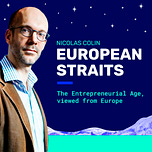








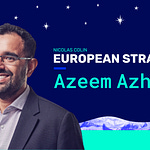
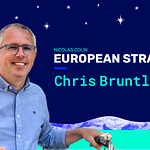


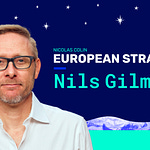

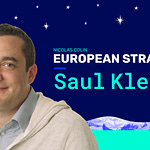

Reinventing Housing w/ Diana Lind. Amazon's Politics. The Gig Economy. Centralization.